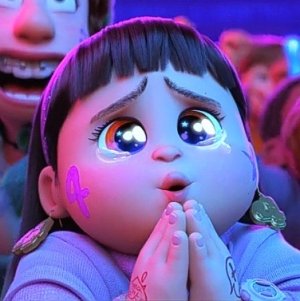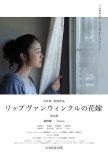A Bride for Rip Van Winkle is Shunji Iwai's return to Japanese feature film after a 12 year hiatus. And here, he proves why he's a doyen when it comes to storytelling as the film's writer and director.
Iwai explores loneliness, longing, companionship, destruction and construction of Japanese family, the rigid nature of Japanese society in the modern age. This makes Bride both a affirmation and subversion of Iwai's earlier films that I've watched like Love Letter, All About Lily Chou Chou and Hana and Alice. If those films reflects nostalgia, Bride seeks to redefine how the age of technology may bring people closer but also further and how this creates and define human connection.
Bride still incorporates Iwai signatures like sun flares, soulful montage, instrumental music and bringing in small scenes to bigger ones. Yet, Bride stands as its own. It's not as romantic as Love Letter of Hana and Alice nor as the coming-of-age of All About Lily Chou Chou. Despite a 12-year hiatus, Iwai doesn't lose his touch. He is still a very lyrical storytelling in a 3-hour emotional tale driven by an impressive cast, beautiful cinematography and heart whelming music.
When it comes to cinematography, Iwai's films are on the top of list. But of course, the credit goes to the film's cinematographer, Chiga Kanbe. What I love about Bride is how Iwai (and Kanbe) tells some much with its visuals and music that doesn't overpower each other even if sometimes, the dialogue is barely heard. The music by Mako Kuwabara embraces its stunning visuals. The overall tone is filled with sheer melancholy reflected with the littered cold colors, we too, are plunged in Kuroki's trauma paired with unstable camera angles showing a distorted vision.
Iwai knows how to tug at your heartstrings. He knows how to many silent shots mean so much more later. And finally, he knows how to build up drama and tension. It's 3 hours long (shorter in other countries) but the tension never subsides and the reveal particularly of Ayano Go and Cocco particularly laid down every detail shown prior to it. It makes the execution so satisfying. Yes, 3 hours is very long. Overly long and the film could've been shorter but very scene counts. Every scene matters. Though they seem random, they're not. That's how I felt watching this.
The cast, led by Hana Kuroki has amazing chemistry together and each of their characters contrast one another that brings out the personalities more. It's not a lopsided portrayal despite Mashiro (Cocco)'s later appearance in the second half. These characters aren't stock or just for display, they are there for a reason and their characters are explored.
Kuroki plays Nanami, a timid doe-eyed wallflower. Kuroki embodies a certain innocence that makes Nanami's somewhat bittersweet ending...worthwhile. She shines, in a subtle, very modest way but she shines. Though I would say Go is my favorite. He just has this charisma that pushes its way through. Playing a jack-of-all-trades, part Mephistopheles, he has done it with such clarity. Cocco is the light of the film (as ironic has that sounds given her character's fate) because of how vibrant and how lively she is compared to Kuroki's character.
Iwai doesn't sugarcoat these characters. He establishes them as such and moves on as much, making their emotions and experiences so much more connective with the viewer. He shows Nanami as awkward and docile by her experiences in school, having no relatives to invite at her wedding and eventually her own marriage.
Kuroki and Go stared in Flower of Shanidar (2013) which explains their good chemistry. But Kuroki and Cocco also share this same chemistry particularly because they're opposites of each other which really brings out their own respective personalities. Perhaps their bond is more than sisterly, maybe even erotic but I see it as more platonic bond of two lonely women, trying to find comfort in a directionless world.
Very much like Rip Van Winkle, these two women wake up in a world that breaks away from their past and try to make the most out of it...to be happy.
Bride also stands out because of how symbolic things are and how metaphorical it is. There is a scene where Kuroki approaches Go, some might see as romantic but Go's lines are metaphorical which relates back to the reveal of both his and Cocca's character. Seeing how Iwai reverts that and how Iwai chooses dialogue as a vital component in storytelling.
Finally, I want to say that there is so much suppressed emotions in this film which perhaps echoes the rigidity of Japanese social mores. Cocca's occupation is a very clever and important choice that relates to that. Not going to mention here explicitly but her job embodies the freedom and rejects this rigidity. Overall, it ties back to what the films show. Leaving yourself bare and exposed is a more intimate emotion where throughout the film, you suffocate by how much people are keeping and how fake they can be especially in this digital age.
Esta resenha foi útil para você?


























